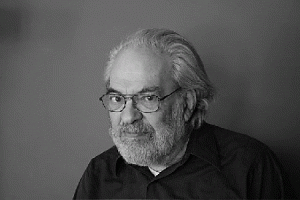We don’t have to be told that there is trouble in the United States: we have to educate our young adults. We know there is trouble, terrible, terrible trouble. But there is also good in the decay: You cannot sell HBU students, but you can educate them. You cannot con them for long, but you can love them.
Don’t give up on “the young people.” In fact, people my age should stop thinking we know the “young people” when all we know are general truths about a general group. I have yet to meet a general human being: we are all individuals created in the image of God.
If you are tempted to despair, let me report that this weekend twenty some twenty-somethings gathered to read Plato’s dialogue Ion with an eighty something master teacher and fifty something me. We bickered, we fought, and by the end we knew that we did not know the vast territory of ideas found in this little dialogue. There was no flash media, there was no inspiring lecture, all there was: great questions, great discussion, and bewilderment that led (after many hours) to illumination.
What do I see in the flashes of light? Not much, but something good. I saw that the “music man” in the musical by Meredith Wilson was like Plato’s character Ion. Ion is a man dedicated to his art and his art is winning “golden crowns from the sons of Homer,” money from his fans, and respect from his peers. He is not selling brass bands, but Homer. Like Harold Hill who does not read a note of music, Ion does not understand a single word of the great text he recites. Ion believes in Homer as a product, but does not understand Homer.
Just as Harold Hill is redeemed by the love of a librarian, Socrates has hope that Ion can be redeemed by the love of wisdom, but Ion has a problem. Like any “music man” (the Greeks called them rhapsodes), Ion will not disagree with Socrates. He says “yes” and flatters Socrates and so little progress is made. When he finally disagrees with Socrates, Ion’s passion is not for truth, but to defend his vain assertion that the “music man” knows everything important because he can speak about the most important book in a portentous manner.
Ion confuses the sound of Homer with Homer’s meaning.
Ion is no general, but he plays one on stage and so like our contemporary Hollywood actors feels the liberty to opine freely on topics about which he knows nothing. He isn’t a general, a sage, or a prophet, but he plays on the Greek equivalent of television. He has memorized hundreds of lines of Homer, but the message of the poet is lost in sound and silliness which signifies something bad in Ion.
Marion the Librarian is not flashy, but she knows music. Harold Hill knows nothing, but can sell the product. In good American fashion, love fuses the two gifts together and we get a band. Plato is more realistic. Ion meets Socrates and if the social skills of the rhapsode could be combined with the wisdom of the sage, Athens might be saved, but it cannot be. Why not? The rhapsode, unlike the music man, will not admit he is a fraud. Ion will not humble himself to Socrates the way Harold Hill humbles himself to Marion.
I was convicted as I read Ion. How often do I rely on rhetoric over reason? How often do I bluff when I should admit I do not know? How many times do I keep talking when I should start listening? Too often.
I am the music man when I value titles over truth.
I am the music man when I value the notion we could have a band over the hard work of educating one.
I am the music man when I value “crowns from the sons of Homer” over goodness, truth, and beauty.
I am the music man when I see people as “marks” and not as friends.
God help me, but there is a rhapsode like Ion in me. Socrates forced me to look hard at myself: what do I know? how do I know it? what should I claim? what do I value. I watched my mentor, Al Geier, work hard all weekend with HBU students for no pay, no glory, and no crowns of Homer. Am I like him? Or do I demand the titles and the praise of the “sons of Homer?” Do I claim (like Harold Hill) association with Sousa when I have no talent? God help me, I knew the answer: vanity and more vanity says this preacher.
I am Ion, but unlike Ion, I am a real person and so can change. Al Geier prodded us all to turn from the praise of this age to the eternal things. I must love the way of the dialectic more than the way of Hollywood. I must love the way of the Cross more than the way of Caesar. I must love the text more than utilizing the text for my glory. God help me if I turn the word of Christ into a new rhapsody for the glory of this rhapsode.
 And so the weekend was hopeful to me: at any moment I can turn from rhetoric about the text to the text. I can move from words to deeds. I can turn from myself to the service of others. I can reject the crowns of the sons of Homer, or the money from the citizens of River City, and build an actual band. That is what I learned this weekend.
And so the weekend was hopeful to me: at any moment I can turn from rhetoric about the text to the text. I can move from words to deeds. I can turn from myself to the service of others. I can reject the crowns of the sons of Homer, or the money from the citizens of River City, and build an actual band. That is what I learned this weekend.
I want to be like Socrates, Al Geier, and, yes, most of all like Jesus: real and not fake. At the very end of the musical Music Man Harold Hill realizes that he is not just a conman. In his head, there is always a band and Marion has offered him a chance to stay, face the consequences of his film flam, and create a real band.
I want to learn like Harold Hill and not end in pride and ignorance like Ion.
Did your University do such a thing this weekend? If it did not, then what are you doing: get to HBU.












